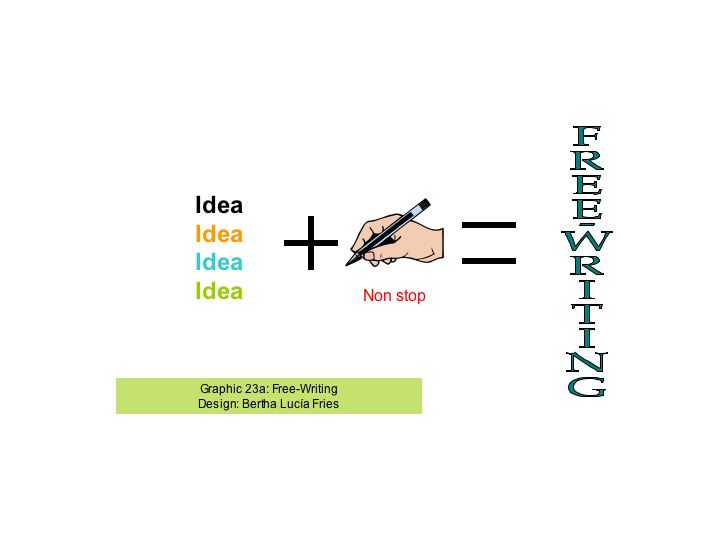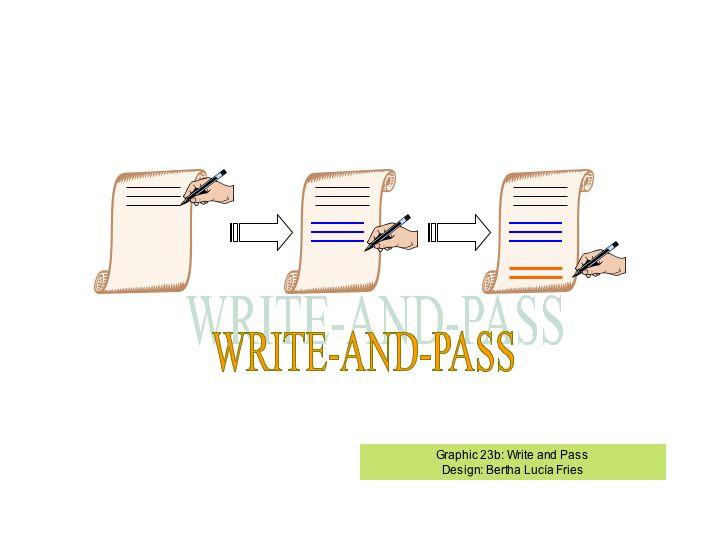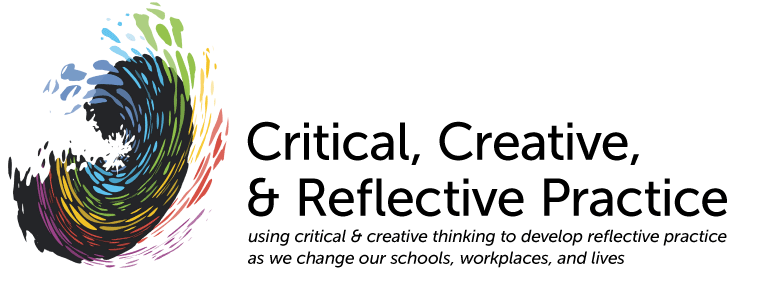In addition to using writing to reinforce and integrate new information, writing can be a way of discovering existing knowledge. Many critical thinking experts advocate beginning any new learning by identifying what learners already know, but often don’t know they know, about the topic. This strategy promotes critical thinking and active learning by allowing learners to establish a context for new information and share ideas with others. Two writing strategies that can assist in this discovery process are freewriting and the “write-and-pass” exercise:
Freewriting (See Graphic 23a)
1. You cannot stop writing during the 10-minute exercise.
2. You are forbidden to think. Write whatever comes into your hand. You must keep on writing, even if you say “I don’t know what to write” write that. You cannot think about it, you must simply write. You are not responsible for what you say, say anything, but keep writing.
With unfocused freewriting, you write about what ever you want. With focused or directed freewriting you are given a topic to write on.

Write-and-Pass (See Graphic 23b)
Another informal writing assignment to get you to discover what you already know is to spend a few minutes writing everything you can think of about a given topic or question (for example, “what is critical thinking?”). After several minutes, pass what you have written to the next person and that person reads and expands on the original response. The process is repeated a few more times; generally, with each pass, adding new information becomes more challenging. The exercise provides a way for learners to focus their thoughts on a particular topic and to benefit from one another’s stores of knowledge.

(Original page by Mary Frangie)
